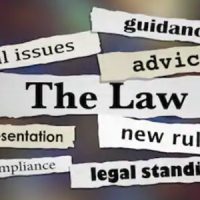Category Archives: Criminal Defense

What is an Excited Utterance?
Generally speaking, any statements that meet the definition of “hearsay” cannot be used against a person who is facing criminal charges. However, there are a wide range of exceptions to Indiana’s rule against hearsay. And even before we get to the exceptions to the rule against hearsay, the definition of hearsay itself is complex… Read More »

What is a Pretextual Stop and What Are Your Rights in this Situation?
Were you recently pulled over by a law enforcement official because of a very minor traffic violation such as a burned-out taillight, only to have the traffic stop result in your arrest for drug possession or another misdemeanor or felony offense? Or, for example, were you traveling at a speed that was only slightly… Read More »

What is the Fourth Amendment Automobile Exception?
If you are stopped while you are driving by a law enforcement officer, is that officer allowed to conduct a search of your vehicle? Generally speaking, the Fourth Amendment of the US Constitution requires the police or any other law enforcement party to obtain a valid search warrant, based on having probable cause, in… Read More »

Can Police Require Me to Wait for a Drug-Sniffing Dog During a Traffic Stop?
If you are stopped in your vehicle by the police or another law enforcement agency in the Indianapolis area, it might feel like you are stopped on the shoulder of a road or highway for a lengthy period of time. The police can keep you stopped lawfully while they run the information contained on… Read More »

Reasonable Suspicion for a Stop Can Arise from a Mistaken Understanding of the Law
The police cannot pull you over in a traffic stop if they do not have reasonable suspicion that you broke the law. To be clear, the Fourth Amendment of the US Constitution gives you the right against unreasonable search and seizure, and the US Supreme Court has determined that, in order for a warrantless… Read More »

Traffic Stops Based on License Plate Checks
The legality of traffic stops involves a driver’s Fourth Amendment rights. The Fourth Amendment of the US Constitution protects individuals against unreasonable searches and seizures. Over time, the US Supreme Court has heard a wide range of cases concerning traffic stops and a person’s Fourth Amendment rights. Under various case law, law enforcement officers… Read More »

Is My Family Member Eligible for Clemency?
Was your spouse, parent, child, or another family member convicted of a criminal offense that has resulted in a lengthy prison sentence? If so, and if your family member or loved one has already served a substantial amount of time on their sentence, they may be able to apply for clemency. If you are… Read More »

What Are Sentencing Guidelines in Indiana?
Whether you are facing misdemeanor or felony charges if you are found guilty and convicted, the conviction will result in a criminal sentence. When a judge sentences a person who has been convicted of a criminal offense in Indiana, the judge will need to apply statutory sentencing ranges. These sentencing ranges listed in the… Read More »

When is Consent to a Search Coerced?
Under the Fourth Amendment of the US Constitution, a warrantless search of your person or your property is only lawful if the police have probable cause, or if a specific exception applies. One of those exceptions is consent. If you are asked whether your person or property can be searched and you agree (or… Read More »

When is Assault Charged as a Felony?
Felony assault is a crime that can be charged in many different states, but when an offense like assault is charged in Indiana, it is typically charged as “intimidation,” and felony intimidation when the charge is elevated from a misdemeanor to a felony. To be clear, Indiana law does not have a specific offense… Read More »
